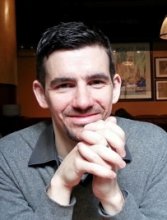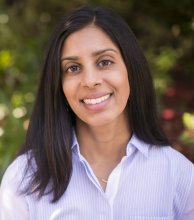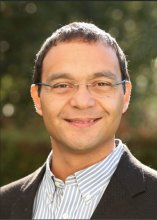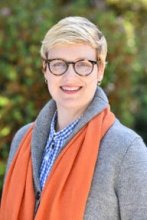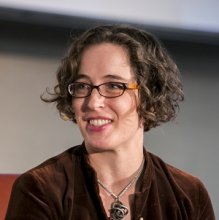This panel of academics will concentrate on the diversity and inclusion concepts, topics, and issues merit the attention of researchers and additional funding. Among the questions they will ask are: Which types of research are the most rigorous and insightful? What are some impediments to good research? How can researchers better inform inclusion practices?
What's Next for Inclusion Research
Stephen Benard (Ph.D. Cornell University, 2008) is an associate professor in the department of sociology at Indiana University. His research and teaching interests include social psychology, intergroup and interpersonal conflict, stereotyping, and work and occupations. His work has appeared in publications including Administrative Science Quarterly, The American Journal of Sociology, Social Psychology Quarterly, and PLOS ONE. His current projects include topics such as stereotypes of Asian Americans and the role of vengefulness and forgiveness in social life. He has also worked with organizations on reducing stereotyping in evaluation processes, conducted educational outreach, and testified before the Equal Employment Opportunity Commission.
Sapna Cheryan is an associate professor of social psychology at the University of Washington. Her research investigates the role of cultural stereotypes in causing and perpetuating racial and gender disparities in U.S. society. She has published numerous articles on these topics in journals such as Psychological Science, Journal of Personality and Social Psychology, and Psychological Bulletin. Her work on gender disparities in computer science has been cited widely in media outlets, including in the New York Times, NPR, and Washington Post. In 2014, the White House announced a high school computer science classroom design prize based on her research.
Dr. Cheryan currently serves on the Social Science Advisory Board of the National Center of Women in Information Technology. In 2009, Dr. Cheryan received the National Science Foundation CAREER Award. In 2012-2013, she was a visiting scholar at the Russell Sage Foundation in New York City, and in 2016-2017, she was a Lenore Annenberg and Wallis Annenberg Fellow in Communication at the Center for Advanced Study in the Behavioral Sciences at Stanford University. Dr. Cheryan received a BA in American studies and psychology from Northwestern University and a Ph.D. in psychology from Stanford University.
Rodolfo Mendoza-Denton is Richard and Rhoda Goldman Distinguished Professor of Psychology at the University of California, Berkeley, where he is also Associate Executive Dean of Letters & Science and co-director of the Relationships and Social Cognition Laboratory. His professional interests include stereotyping and prejudice from the perspective of both target and perceiver, health outcomes of intergroup bias, and educational achievement. In 2015, he received the Chancellor's Award for Advancing Institutional Excellence (CAAIE) for his work on promoting diversity and advancing equity and inclusion through scholarship, research, teaching, and service.
Sarah T. Roberts is an Assistant Professor in the Department of Information Studies (Graduate School of Education & Information Studies) at UCLA. She holds a Ph.D. from the iSchool at the University of Illinois at Urbana-Champaign. Prior to joining UCLA, she was an Assistant Professor in the Faculty of Information and Media Studies at Western University in London, Ontario. On the internet since 1993, she was previously an information technology professional for 15 years, and, as such, her research interests focus on information work and workers. She studies the large-scale, industrial and for-pay practice of social media UGC adjudication called “Commercial Content Moderation,” a term she coined, and is frequently consulted by the press (The Guardian; The Washington Post; Le Monde, e.g.) and others on issues related to social media, society and culture. Dr. Roberts was recently elected to the board of IEEE Annals of the History of Computing.
Morgan G. Ames is a research fellow at the Center for Science, Technology, Medicine, and Society at the University of California, Berkeley. Morgan's research explores the role of utopianism in the technology world, and the imaginary of the "technical child" as fertile ground for this utopianism.
Based on eight years of archival and ethnographic research, she is writing a book on One Laptop per Child which explores the motivations behind the project and the cultural politics of a model site in Paraguay. Her next project explores the role that utopianism plays in discourses around childhood, education, and 'development' in two geographically overlapping but culturally divided worlds: developer culture of Silicon Valley and the working-class and immigrant communities in the San Francisco Bay Area.
Morgan was previously a postdoctoral researcher at the Intel Science and Technology Center for Social Computing at the University of California, Irvine, working with Paul Dourish. Morgan's Ph.D. is in communication (with a minor in anthropology) from Stanford, where her dissertation won the Nathan Maccoby Outstanding Dissertation Award in 2013. She also has a B.A. in computer science and M.S. in information science, both from the University of California, Berkeley.
Morgan has been invited to present her work at conferences around the world, including South by Southwest (SXSW), the CASBS Annual Summit, and Microsoft's Social Computing Symposium. Morgan has won "Best of CSCW 2017" and "Best of CSCW 2010," was nominated for "Best of CSCW 2013," and co-wrote the most-cited paper of CHI 2007. She has also worked as a researcher at Nokia, Yahoo!, Google, and Intel.
